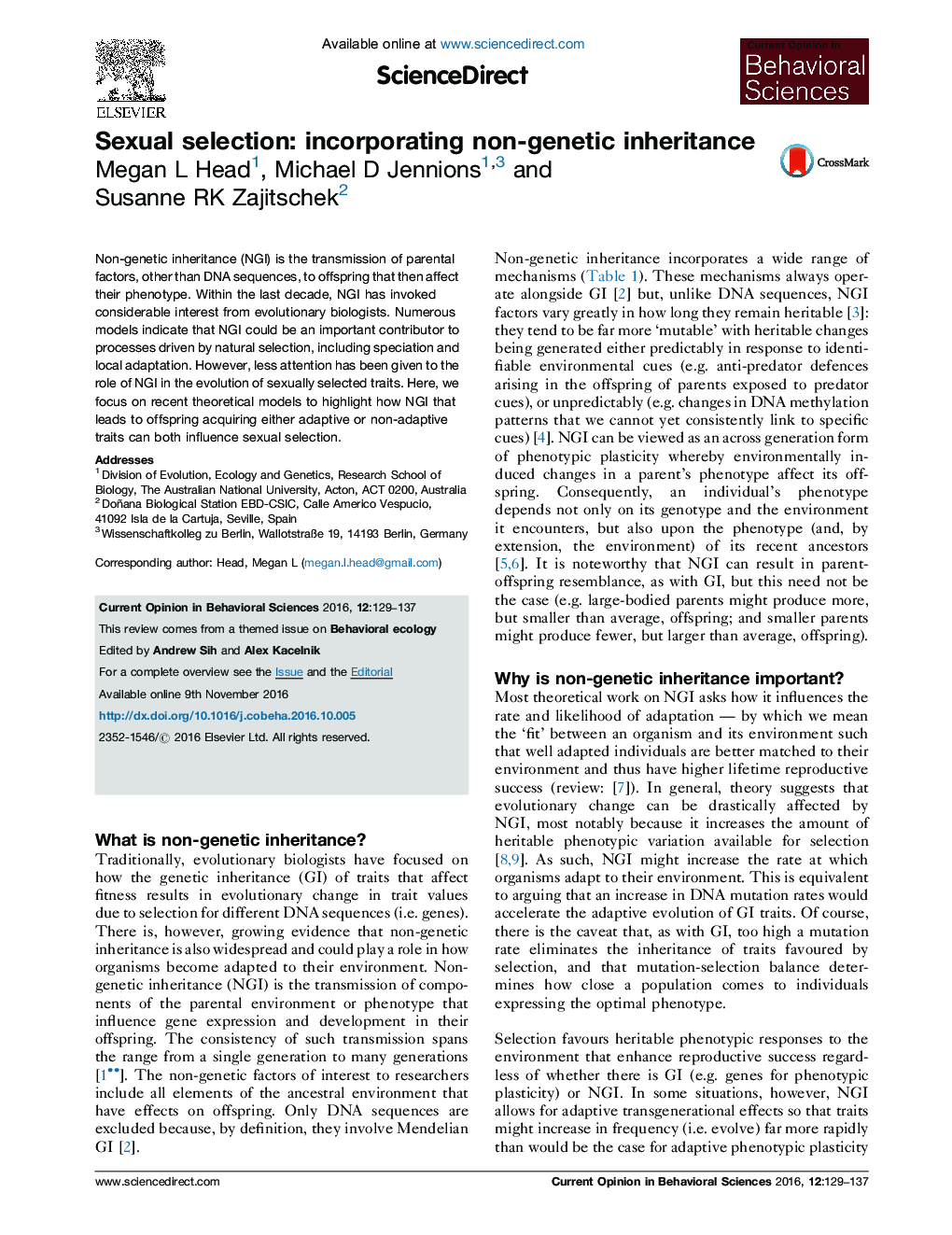| Article ID | Journal | Published Year | Pages | File Type |
|---|---|---|---|---|
| 6260424 | Current Opinion in Behavioral Sciences | 2016 | 9 Pages |
â¢Nongenetic factors that are passed down to offspring can be important for sexual selection.â¢The predominant mode of sexual imprinting depends on the mating system.â¢Nongenetic ejaculate borne factors may maintain genetic variation for fitness and resolve the lek paradox.â¢Nongenetic inheritance may be important for promoting reproductive isolation.
Non-genetic inheritance (NGI) is the transmission of parental factors, other than DNA sequences, to offspring that then affect their phenotype. Within the last decade, NGI has invoked considerable interest from evolutionary biologists. Numerous models indicate that NGI could be an important contributor to processes driven by natural selection, including speciation and local adaptation. However, less attention has been given to the role of NGI in the evolution of sexually selected traits. Here, we focus on recent theoretical models to highlight how NGI that leads to offspring acquiring either adaptive or non-adaptive traits can both influence sexual selection.
